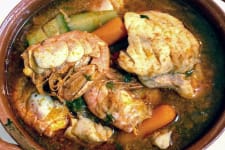Life in Homer, Alaska has turned me into a student of cycles. Aware of the looping dialogues of wave patterns after low tides, to the recurrence of sea life scattered and sparkling in the mini dunes left uncovered, when undisrupted Alaskan sunshine paints the whole beach a warm and welcome gold.
Having the opportunity to witness nature fold and unfold onto herself in this way, I start to connect with the sanctity of her rhythms, to the give-and-take of each moment, and what it means to be driven by the cycles of the sea. And in the infinite swirl of those cycles, I start to see a special throughline in the story of the Kallenberg family, in which three generations of commercial salmon fishermen have always held as their North Star the deepest possible reverence for the fish.
This reverence for the fish continues to be our North Star as a company, and the very reason why we are a continuous membership service (versus a traditional demand-driven ecommerce company ). As personal fishmongers, we strive to help our members eat in concert with nature by curating select boxes of wild-caught species based on availability and seasonality — which creates a sustainable system in which people eat what nature provides, as opposed to what consumers demand.
Being a member of Wild Alaskan is an ongoing commitment to honoring a supply-driven food system — with the perk of an Omakase-like curation of species based on what’s available. And as a member, you can relax knowing that our seafood will always meet the Alaskan standards of sustainability, criteria that has earned the state its reputation as the global leader in sustainable fisheries management.
In honor of Earth Day, we’ve published a feature on exactly why Alaska’s fishing industry is the gold standard of sustainability, and why Alaskan seafood is and always will be a responsible choice. In it, you can learn more about how Alaska excels in the areas of sustainable fisheries management, labor laws and social responsibility, full resource utilization, bycatch and non-targeted species management, trawling, gear restriction benefits on plastic waste and habitat destruction, wild fish versus farmed fish, overfishing, validation, and continued improvements in the industry.
So, here’s to a Happy Earth Day, and a Happy Earth!
Live Wild!
Monica
Pictured Above: On the narrow shores of the Homer Spit is perched this duo of bosses, surveying the sea, their eyes fixed to the froth, as I imagine them watching the elements dance through the seasons, year after year.






